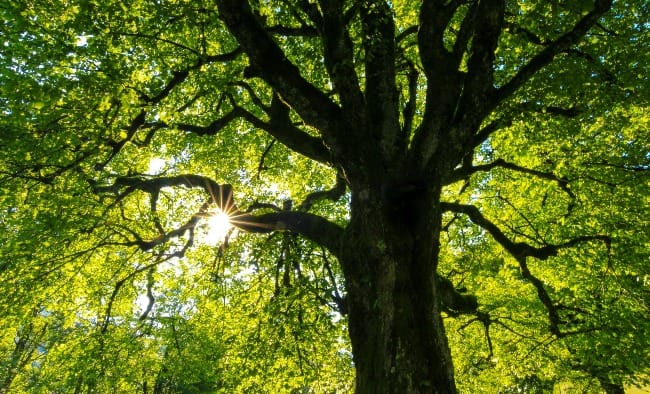Here is the sixth installment of our Exodus series. If you want to take a minute to read Exodus 15:22-27, click HERE. And if you missed the last column in this series, click HERE. Once again, we will walk through the text and highlight aspects that are not typically noticed, and then conclude with a few themes for ecological discipleship. Thoughts and comments are welcome. - James.

Bitter Water, Bitter People
The people of Israel have finally escaped the madness and cruelty of Pharaoh's Egypt. Under Pharaoh, they were physically beaten, socially persecuted, and spiritually starved. On the other side of the Red Sea, they begin, quite literally, their road to recovery. But the journey will not be a quick walk to the bountiful land of Canaan. They are out of Egypt but in the wilderness, free of oppressive civilization but surrounded by rock and sand. As they start out, once again water takes center stage.
They travel three days without finding a good water source, only to arrive at Marah, which is Hebrew for "bitter." Imagine the frustration, and fear, of walking for three days without water, only to arrive at an oasis full of water you cannot drink. It is no surprise that the people grumble against Moses - "What are we to drink?" It is another test of Moses' leadership, and, by association, God's.
As he has done before, Moses cries out to the LORD, who shows him a piece of wood. That does not seem like a solution to me, but apparently Moses recognizes it as such and throws the wood in the water, which becomes sweet.
God chooses this moment to give the people some advice: "If you listen carefully to the LORD your God and do what is right in his eyes, if you pay attention to his commands and keep all his decrees, I will not bring on you any of the diseases I brought on the Egyptians, for I am the LORD, who heals you." As the sweet water lingers on their tongues, God invites them into a relationship of obedience that will not be like that of Pharaoh. The Nile turned to blood; the water of Marah turns sweet. Pharaoh afflicted the Hebrews; the LORD will heal them.
The narrative ends with their arrival in Elim, a place with 12 springs (one for each tribe), more than enough water to quench their thirst, wash their wounds, and heal both body and spirit. Three healing themes emerge for our own journeys of ecological discipleship.

Healing Is Creational
We have seen throughout Exodus that God works in and through creation, and in today's passage, we see this includes God's healing work. When Moses cries out because the water and the people are bitter, God doesn't magically change the water. In fact, this may not be a miracle at all in the popular sense. Some trees are known to have purifying properties when added to water. Engineers at MIT have made water filters out of the sapwood from pine and ginkgo trees that effectively filter out harmful bacteria such as E. coli.
The story does not explicitly state why the wood sweetened the water, but it does show that God pointed Moses to one element of creation (wood) that helped restore another element of creation (bitter water), which in turn restored another element of creation (thirsty Israelites). If we remember that Jesus is fully part of creation, we see that his healings work through creation too.
When we pray for God's help, can we pay attention to elements of creation that God might put in our path to help us?

Healing is Comprehensive
God's self-disclosing statement, "For I am the LORD, who heals you," is a declaration that God is invested in Israel's comprehensive well-being. The scars from their time in Egypt - physical, social, mental, and spiritual - all require divine love and care. This healing also requires a time of restoration and rehabilitation so that Israel can learn a new way of life that will enable them to flourish. This future flourishing is not just for their benefit, however. God's intention is that their healing increases their capacity to be agents of healing to the world.
This vision of healing aligns well with an ecological worldview, which is essentially the recognition that everything is interconnected and interdependent. While it can be discouraging to see the extent of ecological and social damage around us, we can also find encouragement in the way acts of healing can extend benefits far beyond the initial recipients. One famous example is the reintroduction of wolves to Yellowstone Park in 1995, which has helped heal an entire ecosystem. Another example, from my home denomination, is called "The Sankofa Journey." It is a three-day bus journey to significant sites of past and present racial injustice in the United States. Participants are typically paired cross-racially for the journey, and more often than not go back to their home communities with a commitment to foster racial reconciliation and healing.
Can you think of a time of healing in your life, and the effects it had on you, the people around you, and your place in the world?

Healing is Cooperative
God is not coercive. Moses is shown the piece of wood but must decide what to do with it. The people are free from Egypt but must choose whether or not to follow Yahweh in the wilderness. Healing is always communal. Old Testament scholar Terence Fretheim puts it this way:
God does not do such work in independence from human questing, knowledge, imagination, and ingenuity. God's "healing" is not an unmediated divine activity. God makes use of what is available in the world to accomplish that which is right and good. Persons of faith should be more willing and open to speak of God's involvement in and through the use of human and natural capabilities.
In what ways do you cooperate with God in bringing healing to yourself and to the world?
With you on the Way,
James
Leave a comment below, or email me directly at james.amadon@circlewood.online.
Like what you are reading? Consider a year-end gift to our parent ministry, Circlewood, or join our supporter community, The Circlewood Stand. Just $10/month makes a huge difference, and makes you part of a growing group of people standing FOR the good of creation and standing WITH Circlewood as we make a difference together. Thanks for considering!